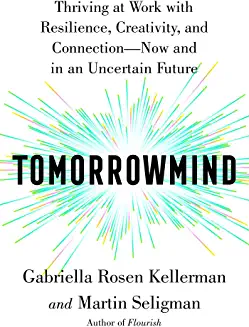What is your approach to happiness? This subject came to my attention recently thanks to the cover article in the Jan 16-23 issue of Time magazine. This special section, entitled “The Happiness Revival Guide,” includes a brief article “Catastrophizing Doesn’t Have to Be Catastrophic” by Martin Seligman, a University of Pennsylvania professor and coauthor of Tomorrowmind.
According to Dr. Seligman, when something really bad happens, catastrophizers will think “Everything will now unravel, and my life will be ruined.” Needless to say, this is an impediment to happiness. It might even lead to PTSD.

As described in the book he coauthored, Dr. Seligman thinks one way to keep control is “putting it in perspective.” Imagine an event that has an unresolved but potentially disastrous consequence. Think of the worst possible outcome, then the best possible. Finally, consider the most likely, along with a coping plan. To illustrate with his own example, he was nearing his 78th birthday when the COVID-19 pandemic began. The worst possible result was “I’m in the most vulnerable group. I am sure to die.” The best is, of course, “I am very healthy and will likely escape altogether.” Then he focused on the most likely outcome and planned for it: “I will isolate for now as best I can, take all the vaccines, and escape with a mild case, if that.” (Since he’s still around to coauthor a book, I assume that’s what has happened.)
There is no way to eliminate all of life’s uncertainties. But by putting things in perspective, catastrophizing can be reduced and emotional resilience, and happiness, can be maximized.
